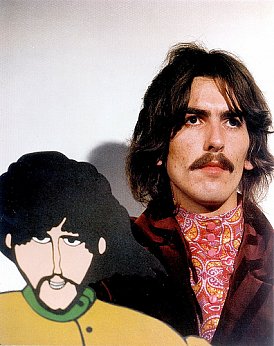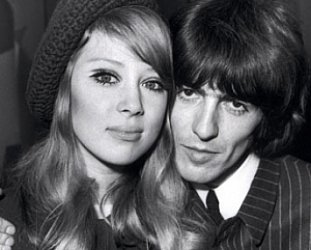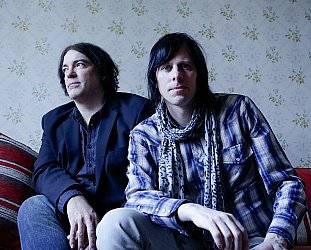Graham Reid | | 1 min read

Recorded at the tail-end of the Sgt Pepper sessions in 1967 but not released until early in '69, this George Harrison-penned song has often been dismissed, perhaps largely because it appeared on the soundtrack to Yellow Submarine – a movie the Beatles had little to do with – and was there alongside Harrison's lemon-lipped and cynical swipe at their Northern Songs publishing company, Only a Northern Song.
But there's a lot more going on in the LSD-inspired piece which elevate it above another make-weight in the animated Yellow Submarine (which also included Lennon's piano rocker Hey Bulldog, excised from the original print of the film and only restored decades later).
The opening salvo of feedback was unique in the Beatles' catalogue and although it has failings (“all the world is birthday, so take your piece but not too much” rates low on the lyrical totem pole) it stands at an interesting midpoint between psychedelia, and Harrison's spiritual and secular passions.
With trumpets and bass clarinet, and the chanting undercurrent it is pure British psychedelia, Lennon was clearly into this song as he and Harrison provide crisp lead guitar parts and McCartney obviously enjoys the “too much” chant at the end.
But Harrison's emerging spiritual leanings coupled with acid come out in some of the lyrics (“floating down the stream of time . . . it makes no difference where you are or where you want to be”).
But this is tempered with typical British reserve and in one line Harrison encapsulates the difference between “turn on, tune in, drop out” America of hippies and British scepticism: “Show me that I'm everywhere and get me home for tea”.
At the time however Harrison was still infatuated by his wife Pattie Boyd (who he had married the previous year) and that secular love is scattered throughout: “When I look into your eyes, your love is there for me, and the more I go inside the more there is to see, it's all too much for me to take, the love that shines is all around you”.
That might also be spiritual of course.
That earthly passion appears towards the end when he lifts lines from the Merseys' song Sorrow (“With your long blonde hair and your eyes of blue”) which Bowie would also later cover on Pin Ups.
Yes, it's not up there with any of the Beatles finest moments and doesn't rate a mention in Rolling Stone's The Beatles 100 Greatest Songs (which is about half their catalogue).
But as a sliver of studio created spiritual and secular acid-pop it is certainly worth a revisit . . . especially with headphones and a little preparation.
For more on-offs or songs with an interesting back-story see From the Vaults





post a comment